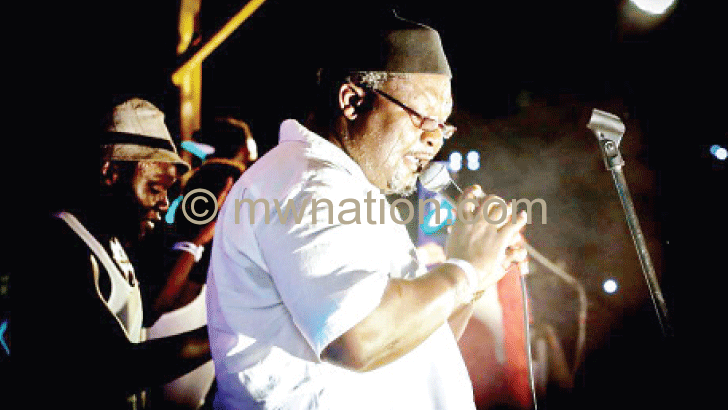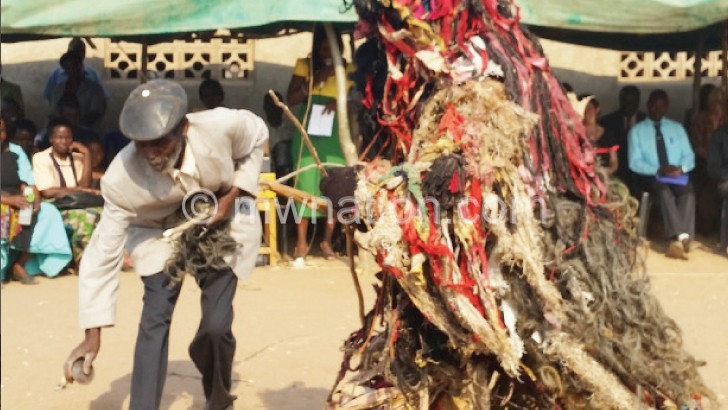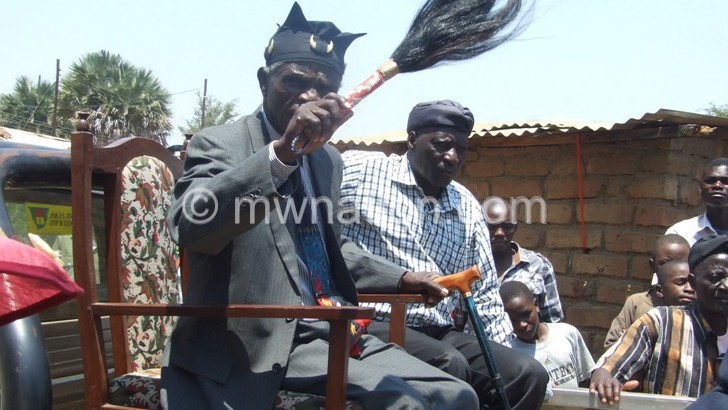Ngoni: A culture without a language?
 There are a lot of people who claim to be Ngoni, but cannot sustain a conversation in Chingoni.
There are a lot of people who claim to be Ngoni, but cannot sustain a conversation in Chingoni.
They come out in large numbers at festivals where they are mostly fluent in Chingoni chants and songs.
Professor of linguistics at Chancellor College of the University of Malawi, Pascal Kishindo, says Chingoni is a dead language.
“Attempts to revive Chingoni could therefore, easily be likened to Flogging a Dead Horse,” he says.
Despite his conclusion, other studies have shown that Chingoni is still spoken in few areas such as Mpherembe and Mathandani in Mzimba.
“The understanding is that Chingoni is not really a language of everyday use and it has more or less disappeared,” argues Kishindo in his study, Flogging a Dead Cow?: The Revival of Malawian Chingoni.
History puts it that when the Ngoni leader Zwangendawa Jere was leaving Zululand (South Africa), he had with him few ‘pure Zulus.’ By the time he was crossing Zambezi River, he had almost 90 percent of conquered tribes masquerading as Zulus.
As they reached Malawi, the Maseko Ngoni settled in Ntcheu while the Jere Ngoni settled in Mzimba. However, due to intermarriages, Chingoni could not be passed on to their children. As a result, Chitumbuka and Chinyanja displaced Chingoni for the Jere Ngoni and the Maseko Ngoni respectively.
Should we say then that Ngoni is a culture without a language? Mzimba Heritage Association secretary general Aupson Ndabazake Thole says the fact that Chingoni is an endangered language does not entail that Ngoni is a culture without a language.
He says the language is spoken internationally in countries like South Africa, Zimbabwe, Zambia and Swaziland; as such, Ngoni has a language.
As Ngugiwa Thion’go, a Kenyan literary writer notes: Language and culture is the collective memory bank of a people’s experience in history. Culture is almost indistinguishable from the language that makes possible its genesis.” Thole also argues that Ngoni is a culture replete with a language as its core component.
Obsessed with that belief, Thole championed the introduction of Zulu lessons between 1996 and 2004. He says they had the support of both Malawian and South African governments.
“Apart from the 140 Zulu books the South African government donated for the lessons, later in 2010 at the Umthetho Cultural Festival, former South African High Commissioner Her Excellency Ntombi Mabude also liaised with Chief Buthelezi [a chief in South Africa] to donate 20 Zulu-English dictionaries. In fact, she was shocked to witness Malawians singing Zulu without knowledge of the language,” said Thole.
All this, he says, was an attempt to bring back their cultural identity. “Sons and daughters of the Ngoni should come back to their cultural identity and know their mother language,” said Thole.
However, Kishindo argues that Chingoni is a language rich with a lot of traditions which give it an identity.
“Ngoni is the only ethnic group that celebrates its arrival in the country. Their cultural calendar is replete with events and their dances, Ingoma and Insindo, grace all the celebratory national events,” argues Kishindo.
He says this shows that Ngoni has a strong identity, which does not involve Chingoni in any communicative sense, for the vast majority.
He concludes that: “While language is commonly held to be a crucial or, indeed, essential ingredient of group identity, it is not necessary to retain an original variety to maintain the continuity of a sense of oneness. The erosion of an original language does not inevitably entail the erosion of identity itself.”





